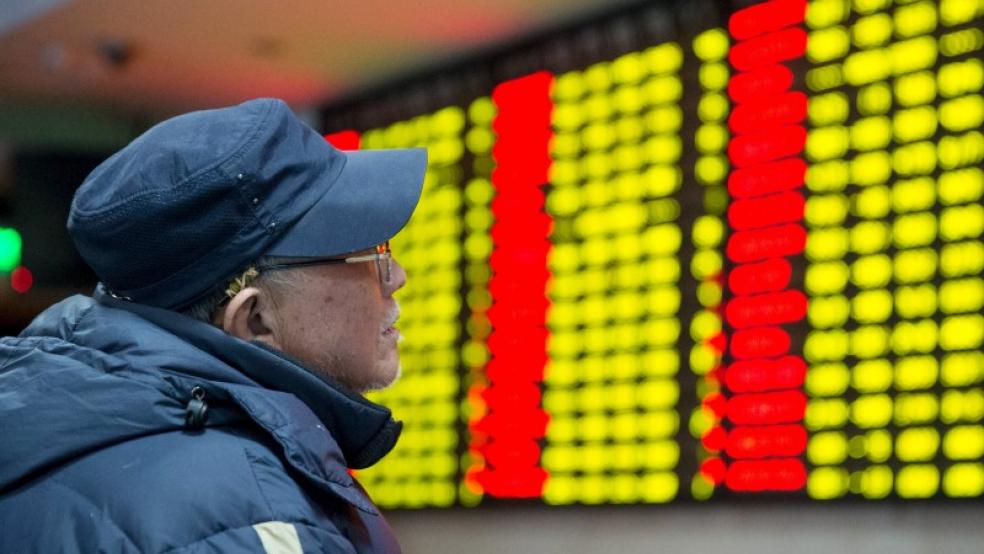The huge and puzzling gap between China’s great long-term economic growth and the terrible performance of its stock market is significantly explained by politics.
A new study finds a strong link between political connections and initial public offerings in China, one which is doing the average investor no favors.
Related: How China’s Banks Could Spark a New Financial Crisis
Hong Zhou and Guoping Li of Beijing’s Central University of Finance and Economics find in a paper that 74 percent of private firms which get to list under Chinese IPO rules are politically connected. What’s more, those politically connected firms are also more likely to report “significant deterioration” in financial performance after listing.
“The widespread existence and ubiquitous importance of political connections in China’s stock markets suggests that to some degree, China’s stock markets have been regulated on a political connections-based regime, which may explain the poor performance of China’s stock markets,” the authors write in a paper published last week. (http://papers.ssrn.com/sol3/papers.cfm?abstract_id=2718005)
While China has come in for much press on its heavy-handed approach to going after those it deems responsible for last year’s stock market slump, the truth is that China has been disappointing equity investors for decades.
The numbers are especially striking when compared to the great growth in China’s economy.
Related: Is China or the Middle East a Bigger Threat to Stocks?
While Chinese GDP has increased nine-fold since 1999, its main stock market index is only up a paltry 160 percent. The MSCI China index is only up about 29 percent since 1991, including dividends, as against a 456 percent gain in the S&P 500 and a 321 percent advance in the MSCI Emerging Markets Index. Even U.S. Treasuries have nearly tripled the return of the MSCI China index since 1991.
The study looks exclusively at privately owned companies, as opposed to state-owned firms, which sometimes in China also have listings. To qualify as politically connected for the purposes of the study, a firm which has an IPO must have a politically connected top manager, an important tie to a state-owed company or agency, or be backed by an investor with significant political connections. It says a great deal about the pervasive influence of the Communist Party and politics in China that almost three quarters of firms that list meet one of those hurdles.
MERIT IS A TRICKY THING
One peculiarity of China’s stock market listing process is that firms are evaluated by regulators ahead of an IPO on a “merit-review” basis led by the China Securities Regulatory Commission, China’s version of the SEC. Merit review is both more opaque than a U.S.-style review, which depends on high levels of public disclosure, and also therefore more subject to political suasion. The implication is that the CSRC has and uses greater latitude in determining who gets to list in order to reward and punish.
Related: The Devil's Due: China Could Send S&P 500 Below 666
The data showed that not only were politically connected IPOs far more common in China than anywhere else studied, but that those firms which were politically connected were most likely to show a marked deterioration in their performance post-IPO. While it is impossible to prove, it is reasonable to suppose that a more open process for pre-IPO approval would uncover firms which were either falsifying their performance or showing some marked deterioration. Investors in Chinese firms don’t benefit from a process which does this kind of discovery well.
The study also found that politically connected Chinese firms were more likely to engage in “law-breaking” such as falsifying financial statements. Yet despite breaking regulations more often, they were less likely than others to be punished.
Of politically connected firms, 92 percent that falsified financial reports and 90 percent that violated laws were not prosecuted by regulatory authorities.
The authors, and it is hard to disagree, argue that China should move to a more open, disclosure-based review process, as well as freeing stock exchanges from direct political control. They’d also like to see better and more equal-handed enforcement by regulators.
Sadly, a look at China’s approach to regulation over the past year gives little hope for a belief that China will be quick to reform. While making much of its desire to be a global capital market, China’s short-selling hunting and practice of staging public confessions by supposed malefactors shows things are not moving in the right direction.
This puts investors in a very difficult position. It is very hard to simply take a pass on the world’s second-largest economy as an investment destination.
Reading this study, and the news, it may be hard for thinking investors to do anything else.
(At the time of publication James Saft did not own any direct investments in securities mentioned in this article. He may be an owner indirectly as an investor in a fund.)



